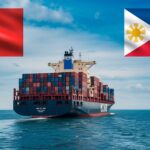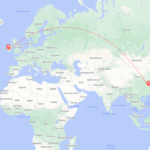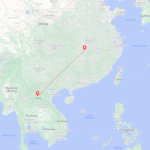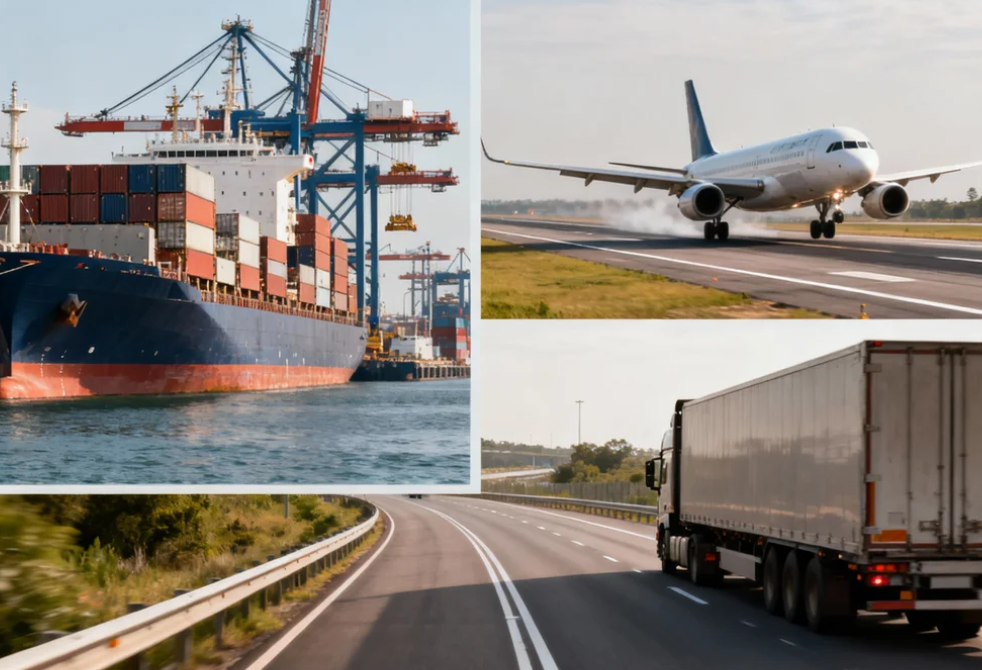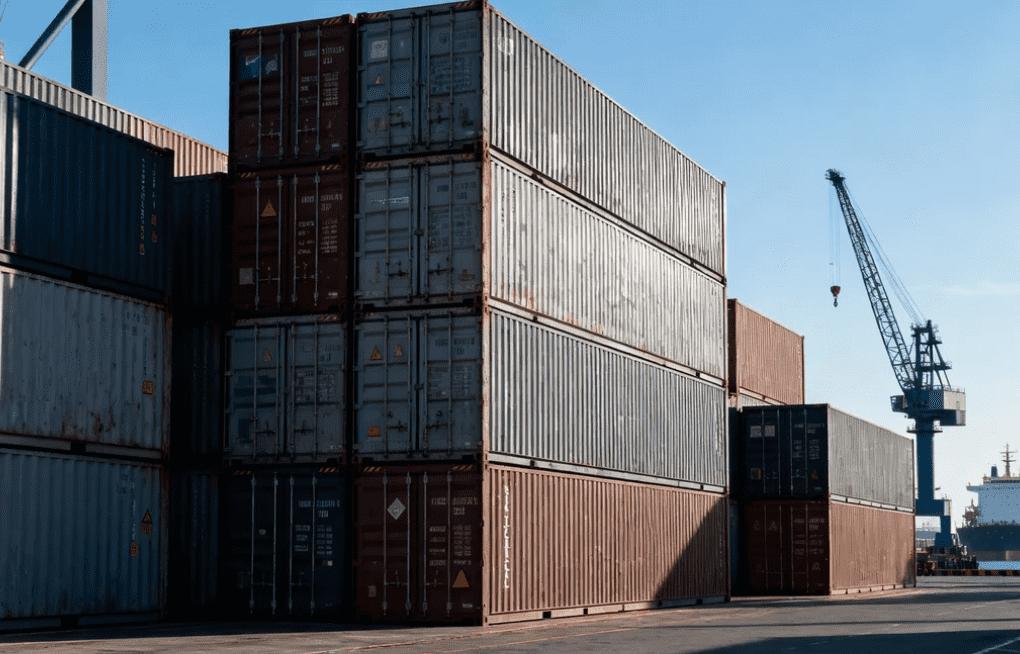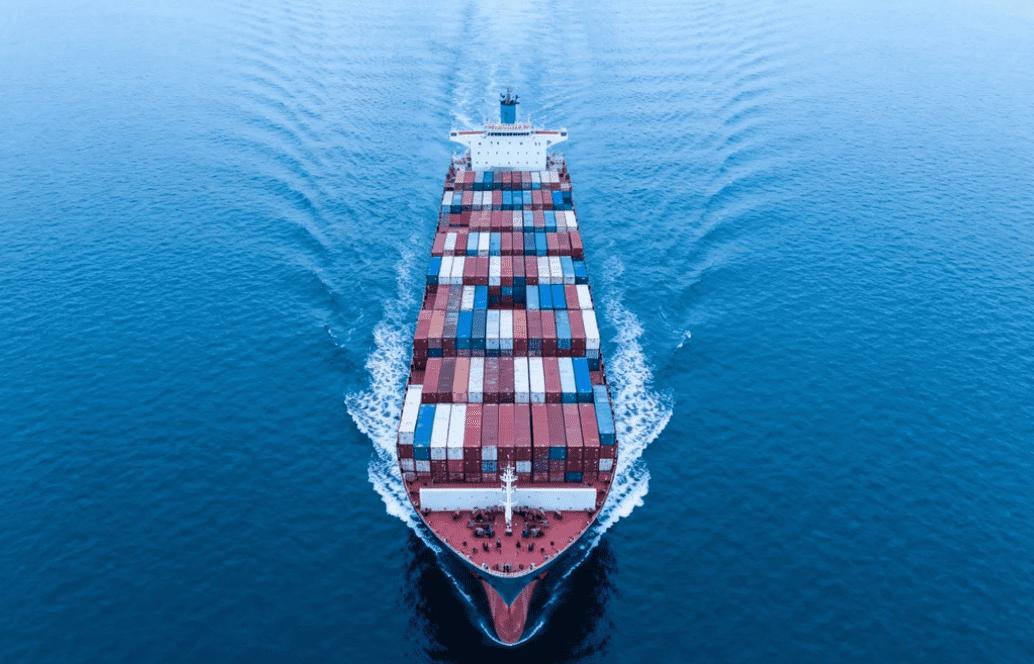In today’s global marketplace, shipping goods from China to the Philippines has become increasingly essential for businesses looking to expand their reach and access diverse products. However, navigating the complexities of international shipping can be challenging, requiring an understanding of logistics, customs regulations, and various transport options. Enter the freight forwarder—a vital partner in ensuring smooth and efficient shipping processes. This comprehensive guide will delve into the role of freight forwarders, the benefits of utilizing their services, and key considerations for selecting the right freight forwarder for your specific shipping needs. Whether you’re a seasoned importer or new to the world of international trade, this information will equip you with the knowledge needed to make informed decisions and optimize your shipping operations.
Related Article : Shipping From China To Philipines
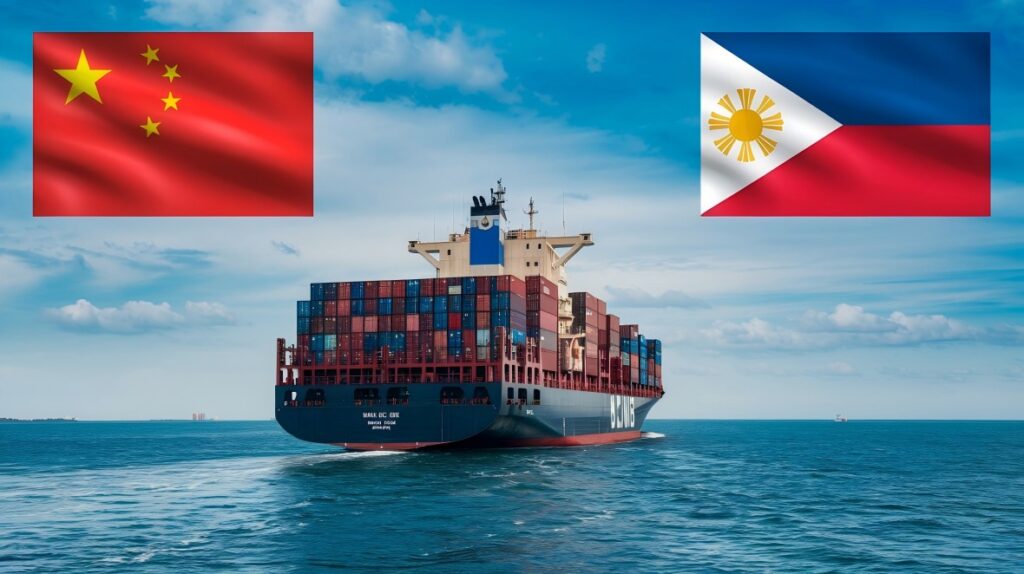
What is a Freight Forwarder?
A freight forwarder is a professional intermediary who facilitates the transportation of goods on behalf of shippers. By leveraging a network of carriers, freight forwarders manage and coordinate the movement of cargo from origin to destination, ensuring compliance with international trade regulations. They serve as the link between shippers and various transportation services, which may include air, sea, and land transportation. Essentially, a freight forwarder is not directly responsible for transporting the goods but instead orchestrates the process, handling everything from documentation to customs clearance.
Role of Freight Forwarders in International Shipping
In the realm of international shipping, the role of freight forwarders is multifaceted and crucial for seamless logistics. They manage several key responsibilities, including:
-
Shipping Coordination: Freight forwarders arrange the transportation of goods by selecting the most suitable carriers and routes, optimizing for factors such as cost, speed, and reliability.
-
Documentation Management: They prepare and manage essential shipping documents like bills of lading, commercial invoices, export licenses, and customs declarations. This documentation is vital for compliance with international trade laws.
-
Customs Clearance: Freight forwarders navigate the complex customs processes on behalf of their clients, ensuring that all customs duties and taxes are paid and that shipments comply with the local laws of both the exporting and importing countries.
-
Logistics Solutions: They offer various logistics services, including warehousing, inventory management, and distribution. This ensures that goods are stored and delivered efficiently.
-
Risk Mitigation: Freight forwarders assess potential risks in shipping processes and can provide insurance options, helping to protect against loss or damage during transit.
The involvement of a freight forwarder streamlines international shipping, reduces potential pitfalls, and enhances operational efficiency.
Why Choose a Freight Forwarder for Shipping from China to the Philippines?
Expertise in International Shipping
Navigating the complexities of international shipping requires specialized knowledge that a freight forwarder possesses. They have in-depth understanding of shipping regulations, customs requirements, and the various transportation alternatives available. For businesses importing goods from China to the Philippines, engaging a freight forwarder means you benefit from their experience in dealing with the unique challenges that arise in cross-border logistics. This expertise significantly minimizes the risk of delays and complications, ensuring smoother operations.
Cost-Effectiveness
Utilizing the services of a freight forwarder can result in significant cost savings. They can leverage their relationships with shipping lines and carriers to negotiate better rates compared to what individual importers might secure. Additionally, freight forwarders can advise on the most economical shipping methods, whether through Air Freight or Ocean Freight, and help optimize shipment sizes to reduce overall transportation costs. This strategic approach significantly impacts the bottom line for businesses involved in importing goods.
Simplified Logistics Management
Managing logistics can be a complicated task, especially when coordinating multiple shipments and suppliers. A freight forwarder simplifies this process by providing a single point of contact for all logistics needs. They handle the coordination between various stakeholders, including carriers, customs brokers, and warehousing facilities. This centralization not only streamlines operations but also allows businesses to focus on their core activities rather than being bogged down by logistics challenges.
Risk Management
International shipping comes with inherent risks, such as damage, theft, or loss of goods. Freight forwarders play a crucial role in risk management by offering Insurance Services that provide coverage against potential losses during transit. They assess cargo vulnerabilities and recommend appropriate insurance options, ensuring that shipments are adequately protected. By mitigating these risks, freight forwarders enhance the security of the shipping process and provide peace of mind to businesses.
Value-Added Services
Freight forwarders offer a range of value-added services that go beyond simple transportation. These can include:
-
Customs Clearance: Expertise in navigating customs regulations to ensure compliance and avoid delays.
-
Warehouse Services: Facilities for temporary storage, inventory management, and distribution solutions, which are particularly beneficial for businesses with fluctuating stock needs.
-
Door-to-door shipping services: Comprehensive solutions that cover every aspect of the logistics chain from the supplier in China to the final destination in the Philippines.
In an increasingly globalized trade environment, integrating the expertise of a freight forwarder ensures that shipping from China to the Philippines is not only more manageable but also aligns with best practices in international logistics. By choosing Dantful, you gain a trusted partner committed to delivering high-quality, cost-effective, and one-stop international logistics solutions tailored for your business needs. Explore more about our services at Dantful International Logistics.
You may be interested in the following related articles:
- Shipping From China To Sri Lanka
- Shipping From China To India
- Shipping From China To Kyrgyzstan
- Shipping From China To Tajikistan
- Shipping From China To Uzbekistan
- Shipping From China To Turkmenistan
- Shipping From China To Vietnam
- Shipping From China To Thailand
- Shipping From China To South Korea
- Shipping From China To Singapore
- Shipping From China To Pakistan
- Shipping From China To Malaysia
Steps to Select the Right Freight Forwarder from China to the Philippines
Assess Your Specific Shipping Needs
Before selecting a freight forwarder, it’s crucial to evaluate your specific shipping requirements. Consider factors such as:
- Type of Goods: Different freight forwarders may specialize in certain types of cargo. For example, if you’re shipping perishable items, ensure the forwarder has experience with temperature-controlled logistics.
- Volume and Weight: Determine the size and weight of your shipments. This will influence shipping methods and rates.
- Frequency of Shipments: Are you planning to ship regularly or sporadically? Some forwarders offer better rates for frequent shippers, while others may cater to occasional shipments.
- Delivery Timeframes: Establish how quickly you need your goods to arrive, as this will dictate whether you should opt for Air Freight or Sea Freight.
By clearly defining your needs upfront, you can streamline the selection process and choose a forwarder that aligns with your logistical goals.
Research Potential Forwarders
Start your selection process by researching various freight forwarders that operate between China and the Philippines.
- Online Reviews: Look for customer reviews and testimonials on platforms such as Google or industry-related forums. This can provide insight into their reputation and reliability.
- Industry Networks: Engage with industry associations or trade groups that may have recommendations for reputable freight forwarders.
- Experience and Expertise: Investigate the forwarder’s experience, especially their history with shipping between China and the Philippines.
A thorough research process ensures you shortlist forwarders that are well-suited to your business.
Request and Compare Quotes
After narrowing down your list of potential freight forwarders, reach out to them for quotes. When requesting quotes, provide detailed information about your shipping requirements to ensure comparability.
- Factors to Compare:
- Cost: Evaluate the total costs, including shipping fees, handling charges, and any additional fees for services such as customs clearance.
- Transit Times: Compare expected delivery times to find the best balance between cost and speed.
- Payment Terms: Review payment conditions, as some forwarders may offer more flexible arrangements than others.
Organizing this information in a comparison table can help you visualize the differences between quotes and make a more informed decision.
Check References and Reviews
Once you have a shortlist based on quotes, ask each freight forwarder for references. Speak to previous clients to gain insight into their experiences regarding:
- Reliability: Did the forwarder successfully deliver shipments on time and as promised?
- Customer Service: How responsive and supportive was the forwarder throughout the shipping process?
- Problem Solving: How did they handle shipping issues or customs delays?
These discussions can help validate your choice and give you confidence in your selected freight forwarder.
Evaluate Communication and Responsiveness
Effective communication is critical in international shipping. Assess each forwarder’s communication style and responsiveness by:
- Initial Contact: Note how quickly and thoroughly they respond to your inquiries.
- Clarity of Information: Ensure they provide clear explanations of their services, pricing, and logistics processes.
- Proactive Updates: A good freight forwarder should offer regular updates on the status of your shipments and be available to answer any questions that may arise.
Choosing a forwarder that prioritizes clear communication can minimize misunderstandings and enhance the overall shipping experience.
Consider a Trial Shipment
Before committing to a long-term partnership, consider conducting a trial shipment with the selected freight forwarder. This allows you to evaluate their capabilities in practice.
- Monitor Key Performance Indicators: Track elements such as on-time delivery, condition of goods upon arrival, and the ease of customs clearance.
- Assess Overall Experience: Reflect on your experience working with the forwarder and whether they meet your expectations.
A trial shipment serves as a practical test and can provide valuable insights into the forwarder’s operational capabilities and reliability.
Key Shipping Methods from China to the Philippines
Air Freight
Air Freight is one of the fastest shipping methods available, ideal for urgent deliveries.
- Speed: Typically, air freight can reduce transit times to a matter of days, making it suitable for high-value items or time-sensitive shipments.
- Security: Air cargo is often considered safer than other modes, with enhanced security measures in place.
- Cost: While air freight offers speed and security, it’s generally more expensive than sea freight. Businesses must weigh these costs against the urgency of their shipments.
For companies prioritizing quick delivery, Dantful International Logistics provides comprehensive Air Freight services tailored to your business needs.
Sea Freight
Sea Freight is the most economical option for bulk shipments, ideal for businesses looking to transport large volumes of goods.
- Cost-Effectiveness: Shipping via sea is significantly cheaper than air freight, particularly for large shipments. This makes it an attractive option for cost-conscious importers.
- Capacity: Ships can accommodate large quantities, allowing for the transport of heavy and oversized cargo.
- Transit Time: The downside is longer transit times, often ranging from several days to weeks depending on the shipping route and port congestion.
Given its advantages, many businesses utilize Dantful’s sea freight services for transporting goods from China to the Philippines cost-effectively.
Express Shipping
Express Shipping combines the benefits of speed and reliability, making it an excellent choice for urgent shipments that require a balance between cost and delivery time.
- Fast Delivery: Express services can deliver goods within a few days, making it suitable for urgent requirements.
- Comprehensive Tracking: Most express services offer real-time tracking, providing visibility throughout the shipping process.
- Higher Costs: While express shipping is faster than standard freight methods, it tends to be more expensive. Businesses should evaluate the necessity of speed against their budget.
When selecting a shipping method from China to the Philippines, evaluate the nature of your goods, budget, and urgency to make the most informed choice. Engaging a reliable freight forwarder like Dantful International Logistics can greatly enhance your shipping experience and operational efficiency. Explore our various shipping solutions by visiting Dantful.
Choosing the Right Freight Forwarder from China to the Philippines
Factors to Consider When Selecting a Freight Forwarder
When selecting a freight forwarder for shipping from China to the Philippines, it’s essential to evaluate several critical factors to ensure you partner with a reliable and efficient service provider.
Reputation and Experience
The reputation and experience of a freight forwarder are paramount indicators of their trustworthiness and capability. Investigate the following aspects:
-
Industry Reputation: Look for freight forwarders with positive feedback from previous customers, as well as recognition within the industry. Websites like Trustpilot and Google Reviews can provide valuable insights into their performance.
-
Years of Operation: A forwarder with extensive experience in international shipping, particularly between China and the Philippines, is likely to have established a robust network and streamlined processes, enhancing efficiency.
-
Specialization: Confirm whether the forwarder has experience handling the specific types of goods you plan to ship. Different goods may have different handling requirements, so a specialized forwarder can offer better service.
Service Offerings and Flexibility
The range of services offered by a freight forwarder and their willingness to adapt to your needs can significantly influence your shipping experience.
-
Comprehensive Services: Evaluate whether they provide a full suite of logistics services, such as Customs Clearance, Warehouse Services, Air Freight, and Sea Freight. A one-stop logistics provider like Dantful International Logistics can simplify your shipping process by handling multiple aspects of logistics.
-
Flexibility in Solutions: Consider how flexible the forwarder is in terms of shipping methods, delivery schedules, and route options. The forwarder should be willing to accommodate your specific requirements and adjust to any changes in your shipping needs.
-
Scalability: If your business is growing, you’ll want a forwarder that can scale their services to match your increasing shipping volumes without compromising on quality or reliability.
Customer Support and Communication
Effective customer support and communication are essential for a smooth shipping experience. Assess the following:
-
Accessibility: Determine how easily you can reach the forwarder’s customer service team. A responsive team is vital for addressing questions and resolving issues promptly.
-
Proactive Communication: A good freight forwarder will provide regular updates on your shipments, including tracking information and alerts for potential delays. This transparency helps you manage your operations more effectively.
-
Problem Resolution: Analyze how the forwarder handles issues as they arise. A proactive approach to problem-solving can minimize disruptions to your shipping schedule.
By carefully evaluating these factors, you can select a freight forwarder that aligns with your shipping needs and enhances your overall logistics experience.
Cost Considerations for Shipping from China to the Philippines
Understanding the costs involved in shipping from China to the Philippines is crucial for budgeting and financial planning. Here are key considerations to keep in mind.
Breakdown of Potential Costs Involved
Shipping Method Costs
The costs associated with shipping methods can vary significantly based on factors such as speed, volume, and the nature of the cargo:
- Air Freight: While air freight offers the fastest delivery, it is generally the most expensive option. Pricing is determined by weight and volume, with additional costs for expedited services.
- Sea Freight: This method is typically more economical for larger shipments. Costs are usually calculated based on container size, shipment weight, and the distance from the port of origin in China to the destination port in the Philippines.
- Express Shipping: This option strikes a balance between speed and cost but is usually more expensive than standard sea freight. Express shipping rates are often based on weight and dimensions.
Creating a table to compare costs across different shipping methods can help you visualize your options and make informed decisions.
| Shipping Method | Estimated Cost | Estimated Transit Time |
|---|---|---|
| Air Freight | Higher | 1-3 days |
| Sea Freight | Lower | 2-4 weeks |
| Express Shipping | Moderate | 3-7 days |
Additional Fees (Customs, Insurance, etc.)
In addition to shipping method costs, there are other potential fees to consider:
-
Customs Duties and Taxes: Import duties and taxes may be applicable based on the value and type of goods being imported. Understanding the customs regulations and potential charges will help you calculate total costs accurately.
-
Insurance: To mitigate risks associated with loss or damage, securing Insurance Services is advisable. Costs will vary based on the value of the goods and the coverage options chosen.
-
Handling Fees: Some freight forwarders may charge handling fees for processing shipments, including loading, unloading, and storage.
Tips for Minimizing Shipping Expenses
Reducing shipping costs while maintaining efficiency is a critical goal for businesses. Here are several strategies to consider:
-
Consolidate Shipments: If possible, combine multiple smaller shipments into one larger shipment to take advantage of lower per-unit shipping rates. Freight forwarders often provide discounts for bulk shipments.
-
Negotiate Rates: Don’t hesitate to negotiate with your freight forwarder. Building a long-term relationship can sometimes lead to better rates and services.
-
Consider Alternative Ports: Evaluate if shipping to a nearby port rather than the primary destination can lower costs. Discuss options with your freight forwarder to determine the most cost-effective routes.
-
Plan Ahead: Allow sufficient time for your shipments to avoid expedited shipping fees. The more time you have, the more options you can explore.
-
Use Technology: Leverage online freight calculators and logistics software to assess cost estimates and compare different shipping scenarios efficiently.
By being aware of the various cost factors and implementing strategies to minimize expenses, businesses can optimize their shipping operations from China to the Philippines, ensuring that they remain competitive in the global market. Partnering with a reliable freight forwarder like Dantful International Logistics can further enhance these efforts, providing expert guidance and efficient logistics solutions tailored to your specific needs.
Frequently Asked Questions (FAQs)
1. What is the role of a freight forwarder in international shipping?
A freight forwarder acts as an intermediary between shippers and carriers, coordinating the movement of goods from origin to destination. They manage shipping logistics, documentation, customs clearance, and risk mitigation, streamlining the international shipping process.
2. Why should I choose a freight forwarder for shipping from China to the Philippines?
Choosing a freight forwarder provides several benefits, including expertise in international shipping, cost-effectiveness, simplified logistics management, enhanced risk management, and access to value-added services such as customs clearance and warehousing.
3. What shipping methods are available for transporting goods from China to the Philippines?
The main shipping methods include Air Freight, which is fast but typically more expensive; Sea Freight, which is cost-effective for bulk shipments; and Express Shipping, which balances speed and cost. Each method has its advantages depending on your needs.
4. How can I select the right freight forwarder for my shipping needs?
To select the right freight forwarder, assess your specific shipping needs, research potential forwarders, request and compare quotes, check references and reviews, evaluate communication and responsiveness, and consider conducting a trial shipment.
5. What factors influence the costs of shipping from China to the Philippines?
Shipping costs can vary based on the chosen method (air, sea, or express), additional fees (customs duties, insurance, and handling fees), and the volume and weight of the shipment. Understanding these factors will help you budget more effectively.
6. How can I minimize shipping expenses?
You can minimize shipping costs by consolidating shipments, negotiating rates with freight forwarders, considering alternative ports, planning shipments ahead of time, and utilizing technology to compare shipping scenarios.

Young Chiu is a seasoned logistics expert with over 15 years of experience in international freight forwarding and supply chain management. As CEO of Dantful International Logistics, Young is dedicated to providing valuable insights and practical advice to businesses navigating the complexities of global shipping.

